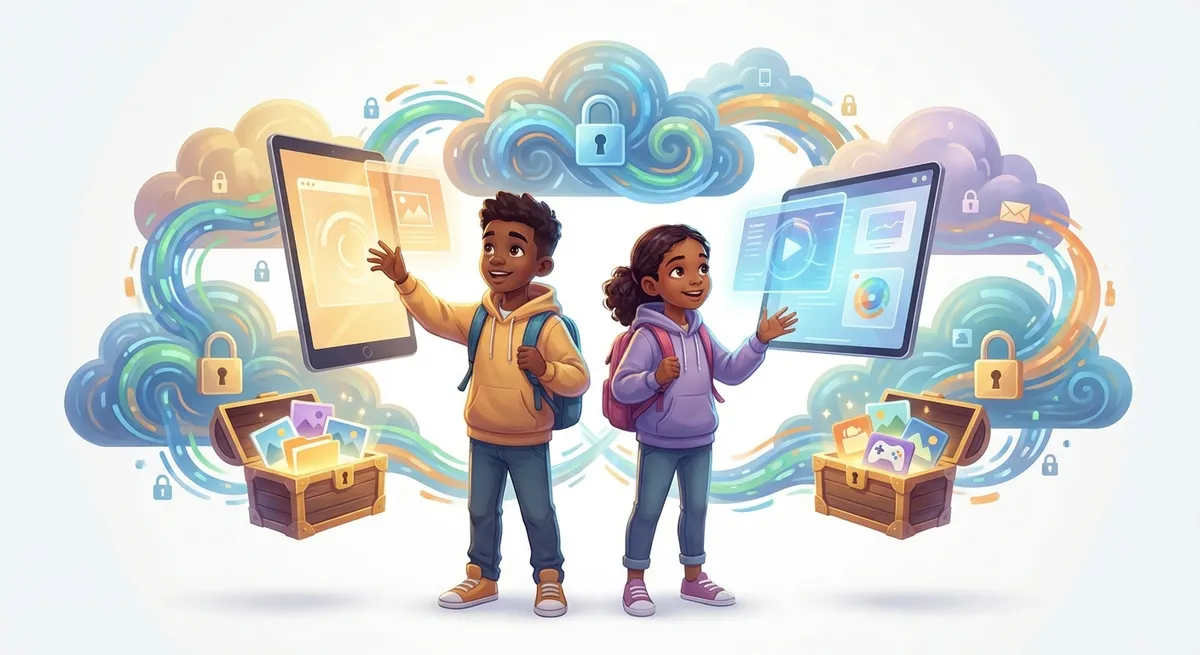️ Cloud Storage: Keeping Your Digital Treasures Safe
Imagine you have a magical backpack that can hold an unlimited number of books, photos, and games—no matter how heavy they are, the backpack never gets full. That’s what Cloud Storage does for the data on your computer, tablet, or phone. In this guide we’ll explore how the cloud works, why it’s useful, and even try a tiny experiment you can do at home!
1. What Is Cloud Storage?
Cloud storage is a way to save files on computers that are far away, called Servers, instead of keeping everything on your own device. Think of a server as a giant, super‑secure library that you can visit through the internet.
- File – any piece of information (a photo, a game, a school report).
- Server – a powerful computer that stores many files for many people.
When you “upload” a file, you’re sending it from your device up into the cloud, and when you “download” it, you bring it back down.
Example
You draw a picture on your tablet and save it to Google Drive. Later, at a friend’s house, you open the same picture on their computer without having to copy it onto a USB stick. The picture traveled through the cloud!
2. How Does the Cloud Work? (cause → Effect)
-
You Press “Save To Cloud.”
Cause: Your device creates a tiny packet of data.
Effect: The packet travels over the internet to a server. -
The Server Stores The Packet.
Cause: The server’s hard drives write the data to its memory.
Effect: Your file is safe even if your own device crashes. -
You Want To See The File Later.
Cause: You click the file in the cloud app.
Effect: The server sends the data back, and it appears on your screen.
Key Words (explained)
- Synchronize – keeping two copies of a file identical; when you edit on one device, the cloud updates the other automatically.
- Encryption – scrambling data so only you (with the right key) can read it, like a secret code.
- Latency – the tiny delay between asking for a file and receiving it; slower internet means higher latency.
3. Why Use Cloud Storage?
| Benefit | How It Helps You |
|---|---|
| Access Anywhere | Open your homework from school, home, or a library. |
| Backup Safety | If your tablet falls in water, the cloud still has a copy. |
| Share Easily | Send a photo to a friend with one link, no need for a floppy disk! |
| Space Saver | Free up room on your device for new games and apps. |
Cause And Effect Example:
Cause: You forget to back up your science project.
Effect: The file is lost when your computer crashes.
Solution: Using cloud storage automatically backs up the file, preventing loss.
4. Did You Know? 🤔
- The first cloud storage service, Amazon S3, launched in 2006 and could store 5 Terabytes of data—about 1 000 times the size of a typical family photo album!
- Some clouds store data in Multiple Data Centers across the world, so if one center
